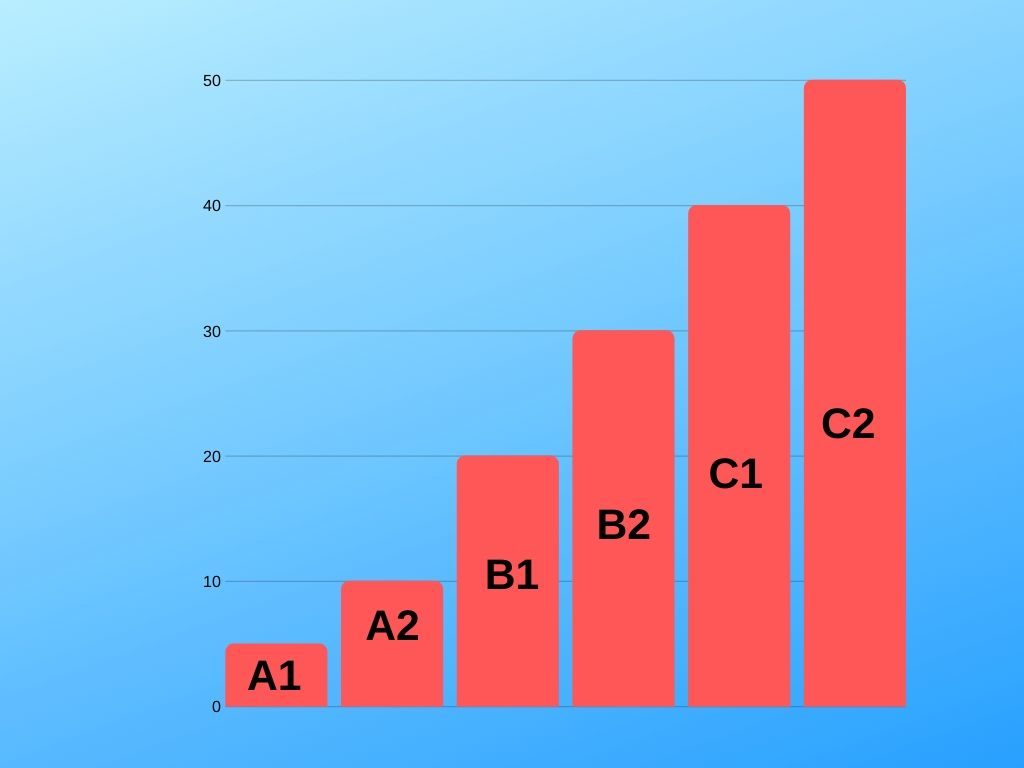
Greetings fellow adventurers, I often read the question if it is possible to learn German on your own so I thought I would take a couple of minutes to answer this question thoroughly.
It is possible to learn German by yourself but it isn’t easy to do so and it takes much more effort than it would take with a proper teacher and regular classes. You will encounter barriers in pronunciation because there will be no one to correct the mistakes you make. A language is there to be spoken so our brain is wired to learn it by speaking, which you can’t do on your own.
Of course you will make a lot of mistakes if you try to learn German on your own, but there are also advantages to this. While I believe that someone who is really interested in becoming fluent should definitely take courses, I also believe that a lot of the language can also be picked up while studying on your own. Especially in the early level and in the later levels of German you will see much quicker results by studying on your own.
Pronunciation And Feedback

While German isn’t the hardest language out there in terms of pronunciation, it is still an essential part of the language and there are a lot of sounds of which we have no equivalent in the English language. You would have to learn the pronunciation by yourself which will almost certainly lead to mistakes. Especially diphthongs can be hard for English speakers, but also the Umlaute (Ä, Ö, Ü) will be a hard thing to master.
Of course there are numerous sources out there where you can listen to the correct pronunciation but there is still the matter of mistakes. In order to adapt the correct way of speaking you will need to have someone who is able to give you valuable feedback on how you pronounce not only the letters of the alphabet but also words as a whole.
Mistakes, that you are bound to make, will then quickly become a habit and it will be especially hard to correct in the future. The more often you make these mistakes, the deeper they become rooted in your brain and the harder it will be to change this later on.
Practice
You need to practice in order to achieve fluency in any language. It just doesn’t work any other way (at least for most of the people except for a selected few). If you decide to learn the language on your own you would still need to find a way to practice what you learned in order to become used to the language. In other words, you need to find a way to repeat everything that you learn, as much as possible, so that it sticks in your head and is accessibele without you having to think about it.
People who are fluent speak without thinking about how they construct the sentence that they want to say. They don’t have to think about which pronoun they are going to use, what cases the need to use and most importantly about how to formulate their sentences. It just happens intuitively. This level can only be reached after intensive practice which will be very hard to do on your own.
Of course nothing is impossible but it will be one hell of a journey to learn all this by yourself. You would need a lot more written exercises than other people in order to get the same amount of input as those people who are actually actively using the language and in the end it would also take you a longer time, or you would at least have to invest more time than people who take the usual approach.
If you are interested in some of the techniques which I used to memorized vocabulary, check out my post here.
What Level Are You Aiming at?

Another important factor to determine if one will be successful with this is the level that he or she is aiming at. Of course it is easier to achieve the A1 oder A2 level by yourself than to achieve the c2 level.
In the beginning it can make sense to study on your own until you reach a certain level of proficiency. The basics of German are easy and if you really commit yourself to it you can learn them quickly by using free resources. Especially the basics of grammar and some easy to learn phrases like greetings and introducing yourself can be easily learned before thinking about any course.
At a certain point, you would have to take courses to correct your mistakes and start to speak the language. This should be done until you reach a level where you can start reading German books. (Around B1-B2)
Once you reach that level, you should have picked up enough of the language to be able to avoid major pronunciation mistakes and you can then go on with learning the language by yourself. Reading books will probably be the most useful resource that you have at that level. It will help you expand your vocabulary at a reasonable pace and it will get you a lot of exposure to the most frequently used sentence structures.
Resources
When trying to learn German by yourself, resources suddenly become much more important than they would be for someone taking a course. Your resources will be a big part of your success or failure. Maybe you bought a grammar book and you found some listening comprehension exercises that you plan to use, but what will you do if you don’t understand some things? You need to have not only one but various sources of information to be able to look at topics from some other point of view. It will almost certainly require you to do extensive searching on the Internet for a lot of topics that you are looking at.
Also keep in mind that you will need much more exercises than someone who is speaking the language at a regular basis and on top of that you need to have some way to correct the exercises that you do. There is no other way for you to use what you learned than to do exercises, so they become essential for your studying.
What Is Your Goal?

Everyone has certain goals when he or she starts with learning German. Some want to move to Germany for studying while others might be purely interested in the language itself. What is your goal? If you plan to take some of the standard tests for proficiency in the German language like the DAF, then you should not avoid taking a course or at least talk to a native speaker on a regular basis. These tests are not only about testing you understanding of written and spoken German, they also require you, depending on the level, to have short or long conversations in German.
If you just want to read some German books, you don’t have to worry to much about the speaking part. Some basic pronunciation will be enough and you should focus on understanding written German (which uses a lot of words that never get used in spoken German).
Maybe your goal is to listen to some German news, or to watch movies in German. In this case learning the language by yourself can also be the faster way to achieve your goal. You don’t have to spend a whole lot of time on speaking and pronunciation. You can just go ahead and spend the time on doing listening comprehension exercises.
Conclusion
In the end it all comes down to what works best for you. Everyone is different, and what works for some of us might not work for others. I know a lot of people who, from a certain point on, improved their skill in a language solely by reading books in that language. Just because it is hard to learn German by yourself shouldn’t stop you from doing so if that is what you want to do.
You also should take your goals into consideration. If you don’t need to speak German for your job or something similar and if you don’t want to reach C2 level, then you probably also don’t need to pronounce everything 100% correctly.
Having the right and enough resources will be a big factor of your success if you are studying the language on your own. Keep that in mind. Try to make a list of everything that is available to you so that when your start, you will not have to spend a lot of time on searching.
Lastly consider doing a mix of both, learning on your own, but getting feedback on what you learned from a native speaker. You can hire some native speaker to speak to you via Skype or find a native speaker who is interested in improving his or her English. There are numerous ways to combine both approaches, studying by yourself, and taking courses so you can try out what fits you the best.
Regardless of what method you chose to use in the end, don’t forget to have fun!